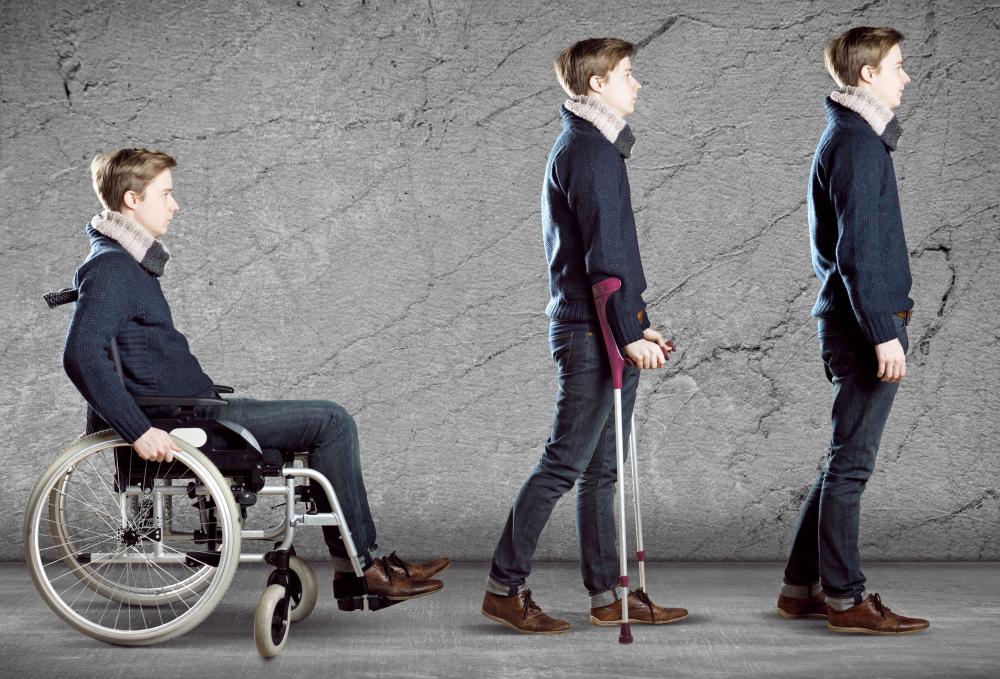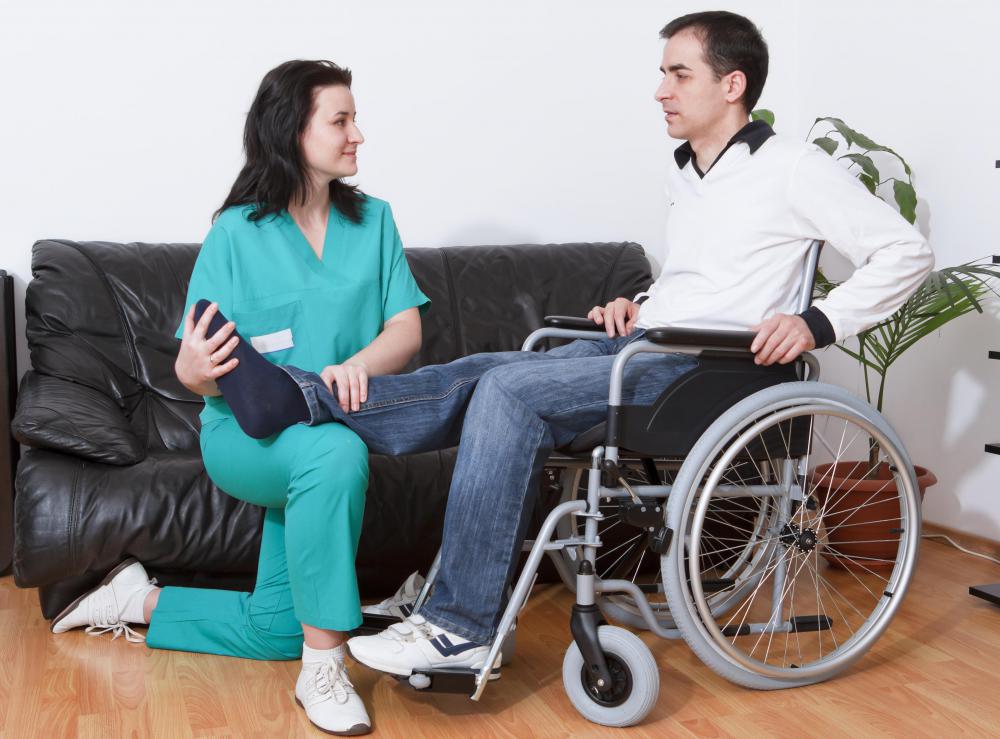At WiseGEEK, we're committed to delivering accurate, trustworthy information. Our expert-authored content is rigorously fact-checked and sourced from credible authorities. Discover how we uphold the highest standards in providing you with reliable knowledge.
What is Partial Paralysis?
Partial paralysis is a condition that describes a muscle or group of muscles that are not completely paralyzed. Unlike total paralysis, where no movement is possible, with partial paralysis, the muscles, to some degree, can still produce movement. This condition is typically caused by disease, injury, or stroke. Certain types of poisoning can also cause the condition.
Stroke victims often suffer some form of paralysis, both full and partial. Strokes typically occur when an obstruction or hemorrhage in an artery cuts off the supply of oxygen to the brain. Sometimes this can result in damage that may be centralized in a specific part of the brain. The death of brain cells in the affected region can cause nerve damage, which can interrupt or weaken the signals that nerve endings send out to specific muscle groups. In these cases, the brain may be signaling a hand to make a fist, but the muscle group may interpret is as merely a signal to move a finger.

Injuries to the brain that occur near the bottom of the skull are the most common type of brain injury that can result in partial paralysis. These injuries often cause partial paralysis in the face, and can affect swallowing, speech, and eyelid movement. Often patients who suffer this type of injury are able to use muscle groups on only one side of their face, while the other side may function normally. This condition is sometimes permanent, but in many cases, with proper therapy, muscle function is restored.

Spinal cord injuries account for a great majority of cases related to partial paralysis. This condition is also referred to as “incomplete” spinal cord injury. When the spinal cord is injured, it can affect nerve signals anywhere below the point of injury. These injuries can cause partial paralysis in many different parts of the body. In some cases, the spinal cord heals, and muscle and nerve functions return to normal, but depending on the severity of the injury, the paralysis can become a permanent condition.

Poisoning is sometimes the cause of partial paralysis. Lead poisoning, for instance, can cause the condition, however, due to health and safety regulations that control human exposure to lead, this is no longer a common occurrence. Diseases that might cause partial paralysis include Bell’s palsy, Lyme disease, and Alpers syndrome. In addition to experiencing incomplete muscle movement, people who suffer from these diseases may also experience pain in the affected area.
AS FEATURED ON:
AS FEATURED ON:


















Discuss this Article
Post your comments